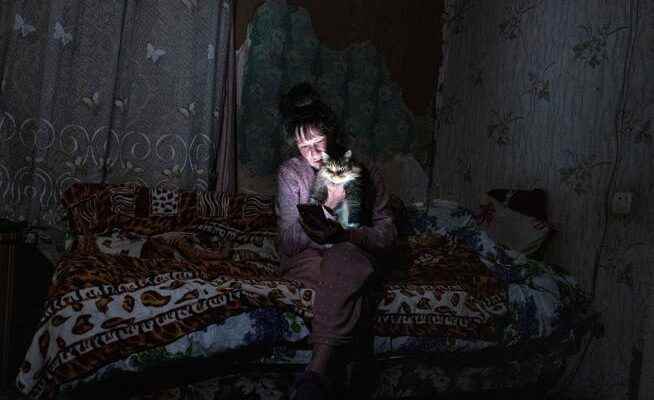For two and a half weeks, the Russian army has also been systematically bombing the country’s energy infrastructure. The operators of the power plants and grids have to repair them as quickly as possible. However, spare parts are difficult to obtain on the market.
Millions of Ukrainians have been temporarily cut off from electricity for the past two and a half weeks.
At a NATO meeting in the spring, Dmitro Kuleba, Ukraine’s foreign minister, said his agenda comprised three points: These were weapons, weapons and weapons. Ever since the Russian army launched its wave of missile and drone attacks on civilian targets on October 10, the country has had an urgent need for another type of goods: equipment to repair the damaged energy infrastructure. These include cables, transformers or generators.
Ukraine’s urgent need for such products has taken the country’s supporters by surprise. Russia’s war against Ukraine has once again taken an abrupt turn that few could have foreseen.
Looking for occasions
According to the Ukrainian government on Wednesday, around 276 missiles and drones have reached a target in the country in the past two and a half weeks. This was not always about energy infrastructure, but this was a focus of the Russian attacks. “We are doing our best to restore the electricity supply to the population as quickly as possible,” said German Galushchenko, Ukraine’s Energy Minister, at the fifth German-Ukrainian Economic Forum in Berlin.
The greatest difficulty is that the necessary equipment is only available on the market in very limited numbers. Producers, for example of transformers, do not keep extensive stocks and the production of the required goods takes time. We’re talking about a few months to a year.
“We are therefore trying to get equipment that is used as much as possible,” says Maxim Timchenko, head of the Ukrainian energy company DTEK, in an interview. The group’s power plants would help each other out with equipment. “But this is at most a temporary measure,” says the manager.
Eastern European power plants that burn coal, for example, are also possible suppliers of spare parts. DTEK also purchases equipment from these companies, partly as a donation, partly the society pays for it.
These power plants often date back to the Soviet era, which is why the spare parts are compatible with the plants in Ukraine. However, this material flow also only has a limited scope. “The only long-term solution is therefore probably a functioning air defense system,” says Timchenko.
The company DTEK, which belongs to the conglomerate SCM of the oligarch Rinat Akhmetov, owns nine power plants in Ukraine; Most of them are powered by coal, but some are also powered by gas. However, three of the power plants are located in areas that Russia has occupied. As a result, they are currently not available for the Ukrainian power supply. Of the other six plants, one is still out of order because it was also under fire from the Russian army.
Is Russia running out of missiles?
Only those in the know know in detail just how badly Ukraine’s energy supply has been affected in the past two weeks. The government said several times that around a third of the energy infrastructure had been damaged by the Russian attacks. According to Energy Minister Galushchenko, around 7.6 million people in the country have had to temporarily go without electricity.
But that doesn’t say much about the actual situation. The day-to-day consequences for the population also remain unclear, especially since their electricity supply depends on how quickly the systems are put back into operation after a shelling.
The Ukrainian government has no interest in downplaying the Russian army’s vile attacks on energy supplies; After all, the parties to the conflict are also engaged in a propaganda war, and the Russian attacks on the infrastructure cast the aggressor’s warfare in the worst possible light.
In addition, Ukraine’s electricity grid was connected to that of the EU on March 16th – the country must therefore guarantee a certain reliability in electricity production and is therefore not allowed to describe the damage too dramatically. “In the past two and a half weeks, we have proven how resilient our power grid is and that the workers at the power plants are able to carry out repairs quickly,” said Rostislav Shurma, deputy head of the Ukrainian presidential office, at the economic conference in Berlin.
As for the duration of the shelling, he maintains an optimistic view. “The attacks won’t last much longer,” he said. Ukraine’s anti-aircraft defenses are improving and the Russian missile arsenal is limited.
